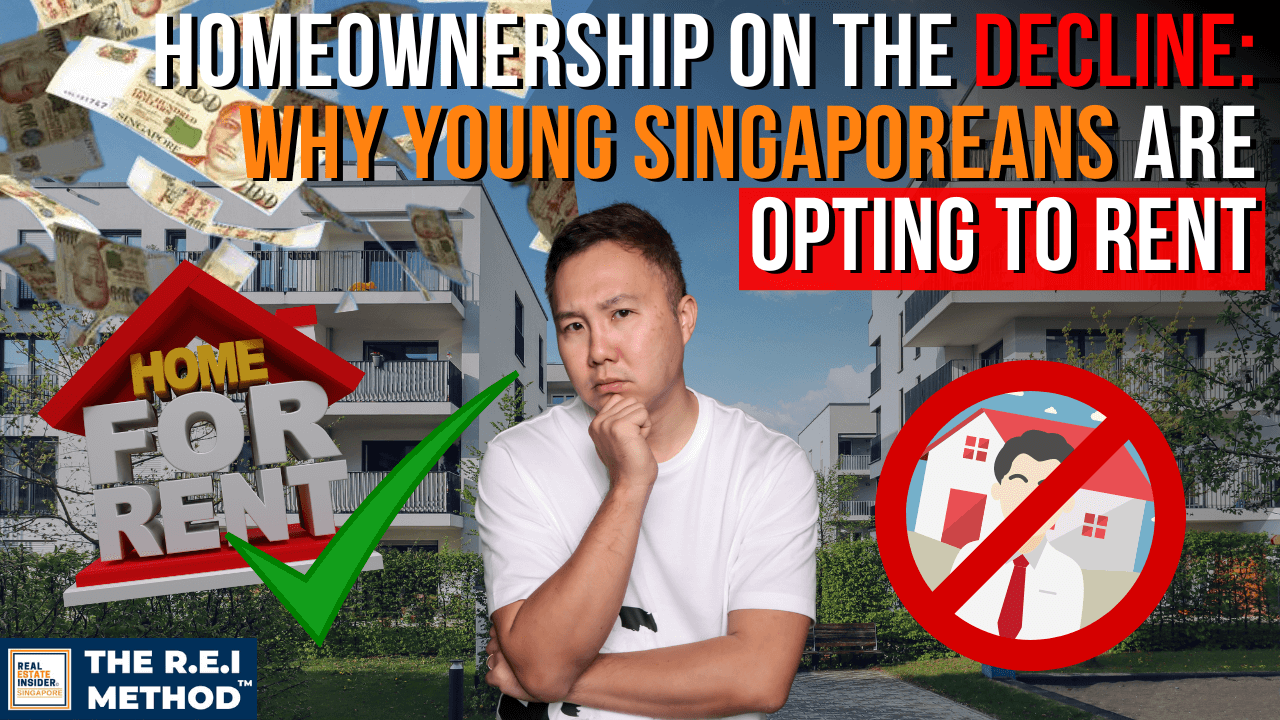According to studies, there is a growing trend in Singapore where the majority of Millennials and Gen Zs either cannot afford to buy a home or would rather not. What’s their preference? Renting! For savvy investors like you, this change will result in increased business and earning potential.
Has our housing culture changed in any way that you’ve noticed? Singaporeans used to live with their parents until they got married, but things are changing. Renting a home is a common long-term option as more young Singaporeans choose independence over tradition.
As per the PropertyGuru Singapore Consumer Sentiment Study H2, half of the renters intend to stay in their current rental for a maximum of two years prior to making a home purchase. It’s shocking to learn that 21% of renters don’t know exactly how long they want to stay.
Why, then, do so many young Singaporeans resort to and remain in the rental market? Let’s examine the causes of this pattern.
Less Financial Commitment than Buying
Compared to purchasing, renting a property requires a substantially smaller financial commitment. A sizable down payment and years of responsible financial management are frequently needed when buying a property. On the other hand, renting usually entails smaller initial expenses, usually just the first month’s rent and a security deposit. Additionally, renters save money on extra expenses like home maintenance, property taxes, and the Additional Buyer's Stamp Duty (ABSD).
For instance, a young Singaporean couple spending $1.5 million on a two-bedroom apartment would have to pay an extra $60,000 a year in expenses, which would include a $4,700 monthly mortgage and $350 for home maintenance.
Flexibility to Move and Upgrade
Renting gives you more freedom to upgrade and relocate. Nowadays, a growing number of professionals can work from anywhere, and renting enables them to benefit from this flexibility. Growing families can simply upgrade their rental properties as their needs change, which frees them from the constraints of property ownership and makes it easier to take advantage of personal or professional opportunities.
Easy Move-in Process
It’s much faster to rent than to buy. Particularly in cases where the rental is fully furnished, tenants can sign a lease and move in practically right away. In contrast, waiting periods for new HDB BTO apartments range from three to five and a half years, while it can take longer for unfinished private condos to be completed. Purchasing a resale property is a three-month process as well.
Simpler Paperwork
In Singapore, renting a property requires completing some simple paperwork, primarily signing a lease and paying a deposit. On the other hand, purchasing a home is a more involved process that calls for applying for a loan and submitting a number of documents.
Maintenance
The landlord is typically in charge of maintaining a rental property. This implies that since the landlord usually takes care of problems like leaks and peeling wall paint, tenants don't have to worry about fixing these.
There is no denying the trend: For many Singaporeans, renting is now a practical long-term option. For landlords, this implies greater and longer-term earning potential. Renting is convenient, but it still requires a sizable financial commitment.
Although this is not a strategy for everyone, why not turn it to your advantage if your circumstances permit you to use leverage while still enjoying your rental property?
